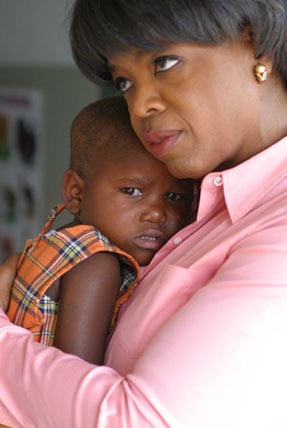There is an interesting editorial in
The New York Sun from last week on the death of languages. According to the author, John McWhorter, who is a linguist, it has been estimated that in a hundred years 90% of the current 6,000 languages will be extinct. McWhorter argues that this is a nothing to be alarmed about.
The death of languages is typically described in a rueful tone. There are a number of books treating the death of languages as a crisis equal to endangered species and global warming. However, I'm not sure it's the crisis we are taught that it is.
There is a part of me, as a linguist, that does see something sad in the death of so many languages. It is happening faster than ever: It has been said that a hundred years from now 90% of the current 6,000 languages will be gone.
Each extinction means that a fascinating way of putting words together is no longer alive. In, for example, Inuktitut Eskimo, which, by the way, is not dying, "I should try not to become an alcoholic" is one word: Iminngernaveersaartunngortussaavunga.
After briefly mentioning how Eliezer Ben-Yehuda nearly single-handedly saved Hebrew, McWhorter continues:
Yet the conventional wisdom is that we must strive to have as many future Hebrews as possible, since supposedly one's language determines one's cultural outlook. But a simple question shows how implausible that notion is. To wit, precisely what "cultural outlook" does English lend its speakers?
Thinking about the broad heterogeneity of people using this language, it is obvious that the answer is none, and the academic literature on the topic yields little but queer little shards of faint support for the "language is culture" idea. Which brings us back to languages as, simply, languages.
The language revivalists yearn for — surprise — diversity. What they miss is that language death is a healthy outcome of diversity.
If people truly come together, then they speak a common language. We can muse upon a "salad bowl" ideal in which people go home and use their nice "diverse" language with "their own." But in reality, almost always the survival of that "diverse" language means that the people are segregated in some way, which in turn is almost always due to an unequal power relationship — i.e., precisely what "diversity" fans otherwise consider such a scourge.
He concludes, of course, that the one final language will be English -- a risky proposition at this point in history, but
one that Bill Bryson also proposed a few years back in his look at the English language. I think there is a far greater chance that we will all be speaking Mandarin or some other version of Chinese, but that's just me.
Anyway, I think that I agree with McWhorter to a point, especially since he seems to support any and all efforts to maintain some kind of database of dead languages -- presumably so that we will always have access to their structures and rules, if not their sounds.
His argument centers around language as a force that keeps people stuck in an ethnocentric perspective (the Amish in America who still speak German, Jews in Russia who spoke Yiddish at home, and so on).
If people truly come together, then they speak a common language. We can muse upon a "salad bowl" ideal in which people go home and use their nice "diverse" language with "their own." But in reality, almost always the survival of that "diverse" language means that the people are segregated in some way, which in turn is almost always due to an unequal power relationship — i.e., precisely what "diversity" fans otherwise consider such a scourge.
In this argument, the only way to develop a worldcentric population is to have a widely agreed upon base language -- this part I am not so sure about.
Do we need a worldcentric language to hold a worldcentric viewpoint? McWhorter questions the idea that language determines one's cultural outlook, so why would we need a common tongue to "truly come together"?
These are interesting questions for integral developmentalists. I'd be curious to here what others think about this editorial and it's propositions.












